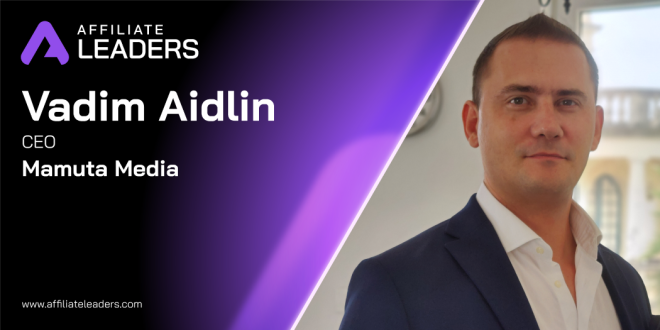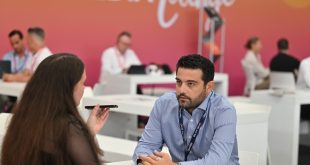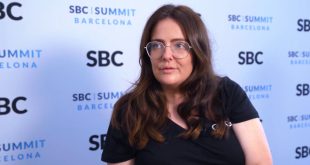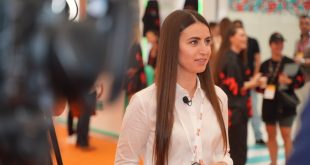Vadim Aidlin, the CEO of traffic acquisition company Mamuta Media, which has been involved in SEO and PPC since 2004, is exceedingly pragmatic when it comes to finding the optimal channels for player conversion. For him, it’s all about strategy and highly skilled professionals rather than the chosen channel.
As he prepares to speak at the 2023 edition of the SBC Summit Barcelona, Aidlin sat down with SBC Media to discuss his perspective on the leading role of PPC in converting traffic, how PPC can complement SEO efforts, his relatively unconcerned stance toward search algorithms’ constant changes and the AI revolution.
At SBC Summit Barcelona, your panel will discuss three powerful marketing approaches: paid search, paid social, and programmatic campaigns. How do each of these strategies excel at scale and what unique value do they offer compared to one another?
Vadim Aidlin: I would like to start by highlighting the fact that today, it’s crucial to have precise measuring tools in order to understand the return on investment (ROI) per channel without the interference of bots, fraudulent traffic, and other online scams that are prevalent today.
Traditionally, paid search on Google provides the most valuable traffic due to the tools that marketers have to target users with higher intent. I refer to this as the “pull” type of marketing, where we attract customers who are actively searching for our products online. However, the high cost per click requires special budget strategies to scale it up. Moreover, search traffic is limited by the number of searches and keywords we have. The only way to scale it up is to utilise competitors’ keyword campaigns.
When it comes to paid social media, the sky’s the limit! It’s a different type of marketing, which I call “push” marketing. Here, we proactively display our ads to a targeted audience. The only challenge is to already have a sizable and engaged social community on the platform. Using paid ads alone will not be as effective as combining them with organic methods. Additionally, it’s important to remember that social platforms vary; not all of them are suitable for every product.
Lastly, there’s the significantly important issue of programmatic media buying, which can be problematic. It’s one of the most powerful tools available today to massively scale up traffic. However, along with its power comes great responsibility and an increased risk of fraud. A highly skilled media buyer is necessary to effectively manage programmatic media buying campaigns to ensure a positive ROI.
If your marketing team has developed and executed a successful campaign (whether ATL – above the line or BTL – below the line), it doesn’t matter which channel you choose to convert the users. You will be successful anyway. And let’s not forget about SEO, which is an absolute necessity when considering scaling.
Mamuta Media has a long history of specialising in traffic acquisition through SEO and PPC. In a world increasingly focused on content marketing and organic growth, what role do you see PPC playing in a well-rounded digital strategy?
VA: I believe it depends on the industry. When we consider iGaming/betting, all the content marketing and organic growth efforts share a common goal – converting a user into a client.
With all due respect to the content writers, do you think real users will read all the review articles we craft for slots, casinos, or games? Their primary intent is to play or bet, not to read. These content pieces are primarily generated for machines like Google to rank the website. We are now observing an interesting scenario where a machine (AI) is writing for another machine (Google SE) to improve site ranking.
In this context, PPC will consistently play the leading role in converting traffic and providing SEOs with vital data, such as search terms, enabling them to avoid targeting unwanted keywords. A symbiotic relationship between SEO and PPC should always exist, especially within highly competitive industries.
In terms of cost-effectiveness, how do you evaluate the investment in long-term SEO strategies against the immediate costs of PPC campaigns?
VA: SEO and PPC partnerships are essential for any successful acquisition strategy. However, initially, a clear marketing strategy should be established, encompassing all necessary aspects, including the 4 Ps: product, price, place, and promotion. Once this foundation is set, successful execution through any channel becomes possible. You begin with PPC to collect conversion data and keywords; this information aids the SEO team in conducting thorough keyword research based on actual data rather than relying solely on third-party keyword tools. As organic results start to materialise, you can then proceed to scale up and potentially reduce the overall cost per acquisition (CPA).
As search algorithms evolve, how do you ensure your SEO efforts remain effective and adaptable to algorithmic changes?
VA: There is no need to constantly adapt to algorithm changes; instead, focus on adapting to your users. For large companies, a strong tech SEO foundation is paramount. You might not have purchased any links, but possessing a fast, well-designed UX/UI website that is adaptable will consistently secure higher rankings compared to those lacking a tech SEO foundation. The issue arises for prominent iGaming brands, as achieving a 100% tech SEO foundation is nearly impossible due to the complexities of their platforms. Online casinos, by their nature, are not designed with SEO friendliness in mind. Smaller entities, such as affiliates, have a better chance of promptly responding to algorithm shifts. However, the real question is: Why focus solely on search engines? Prioritize the needs of your users!
With the emergence of AI and automation, how do you see these technologies reshaping the future of SEO, PPC and programmatic advertising?
VA: I have been doing SEO since 2003, and every year I keep hearing that ‘SEO is dead!’ Well, with the ongoing AI revolution, we can confidently assert that search engines might become obsolete in the near future. AI tools are already replacing individuals who are not utilising them.
There will likely be increasing control exercised by Google and other platforms over the allocated budget, making it inefficient to maintain extensive in-house SEO/PPC teams. Who knows, perhaps within 2 years, traditional clicks to access websites might cease to exist, rendering PPC obsolete! Your AI chatbot could potentially ‘click’ on your behalf.
With the growth of ad-blocking technology, how do you ensure programmatic ads maintain their effectiveness and visibility to the desired audience?
VA: 90% of the traffic is originating from mobile devices. Have you encountered any ad-blocking technology on your phone? Perhaps, if you are a tech specialist utilising an ad-blocking browser. However, for regular users employing Chrome or Safari, no content is obstructed. Rest assured, Google and Bing possess greater influence than any ad-blocking technology.
What practical insights and skills can our audience expect to gain from attending your panel at SBC Summit Barcelona?
VA: I typically express my thoughts straightforwardly and avoid dull statements like, ‘Build a good website, and people will love the content and naturally link to it.’ No! I say: ‘If you need links, then simply go ahead and buy them!’
If you want a direct answer to your question, feel free to ask me.
Vadim Aidlin will be speaking on the ‘How to Succeed at Scale – Paid Search vs Paid Social vs Programmatic’ panel, which is part of the ‘Affiliate Focus’ conference track at SBC Summit Barcelona. The panel is scheduled for 20 September, from 15:00-15:40.
Go to the official SBC Summit Barcelona website to purchase a full-event pass that gives you access to 7 conference stages, as well as the exhibition and the evening networking parties. You can purchase your ticket at a discounted rate of €400, saving you €200. The Early Bird deal expires on Monday, 28 August.
Are you an affiliate? Apply for the complimentary affiliate pass here.









